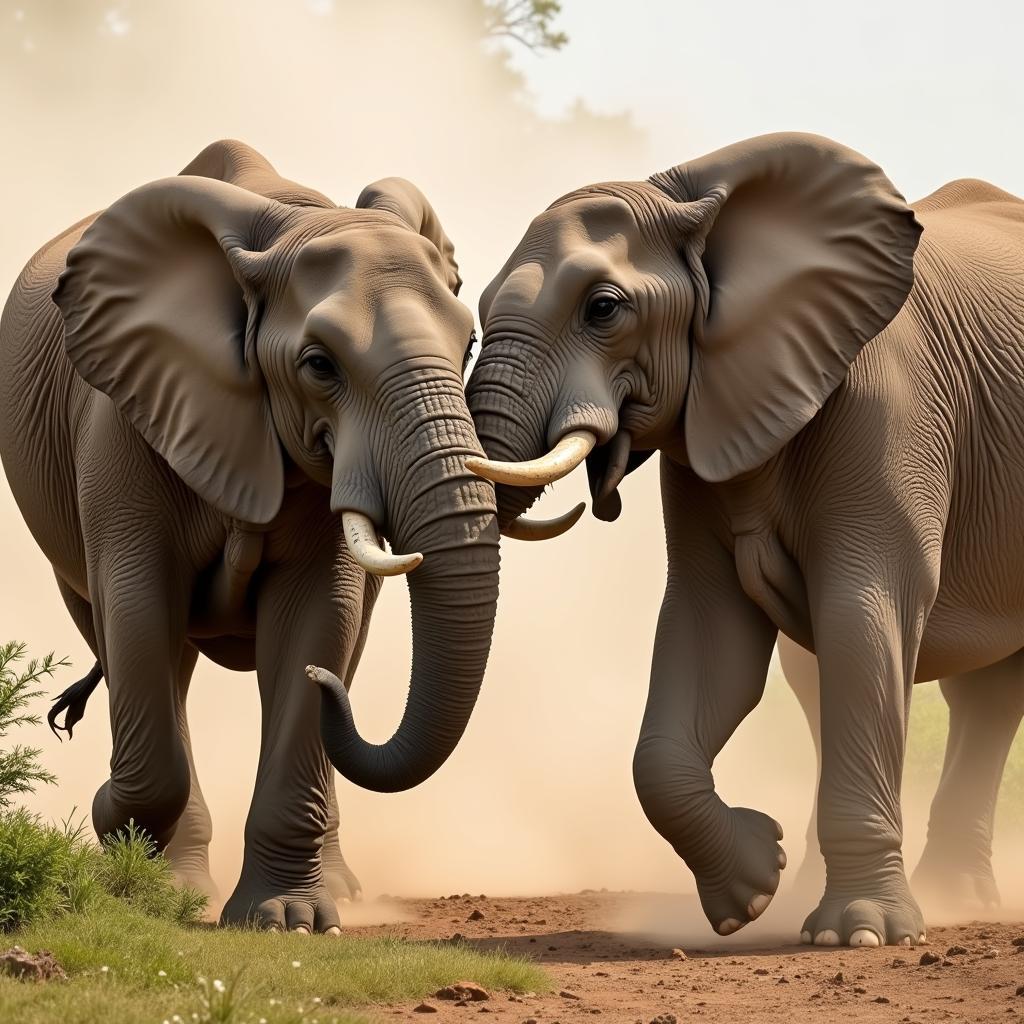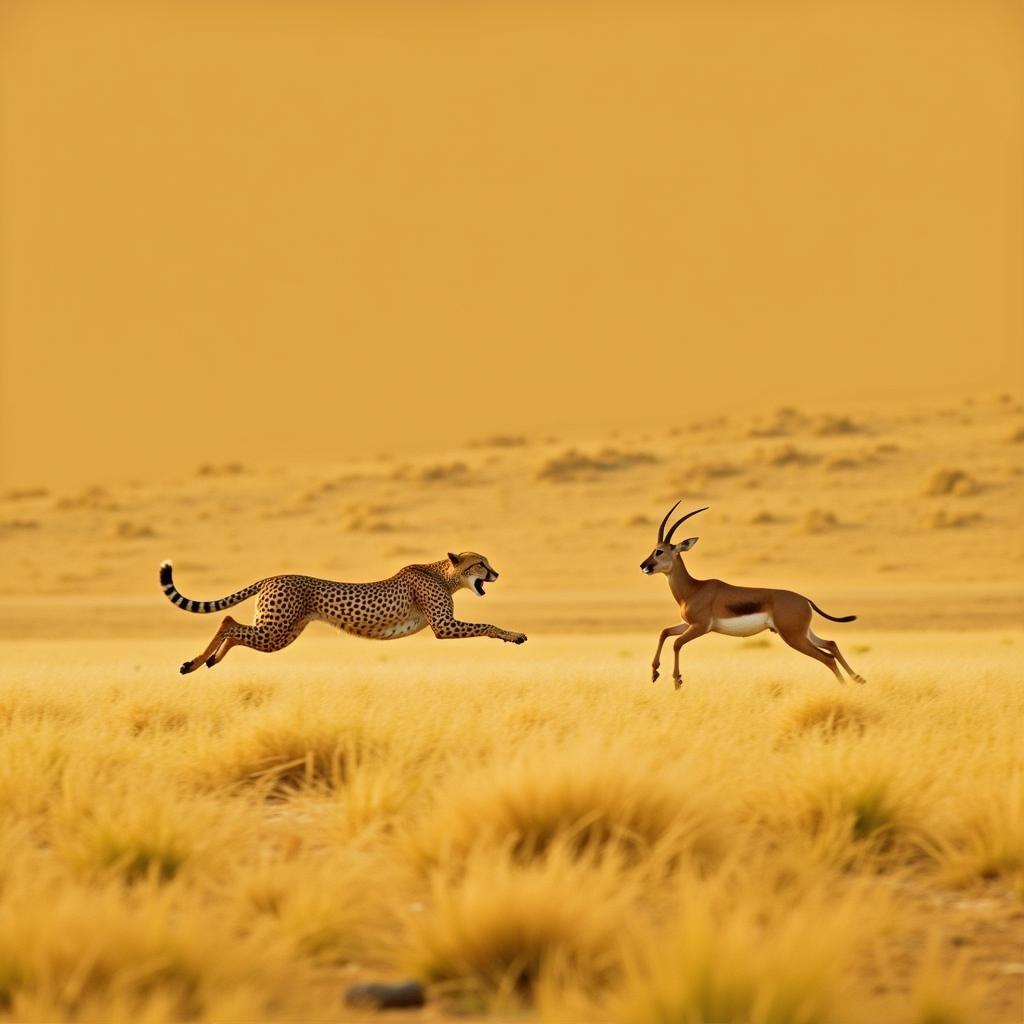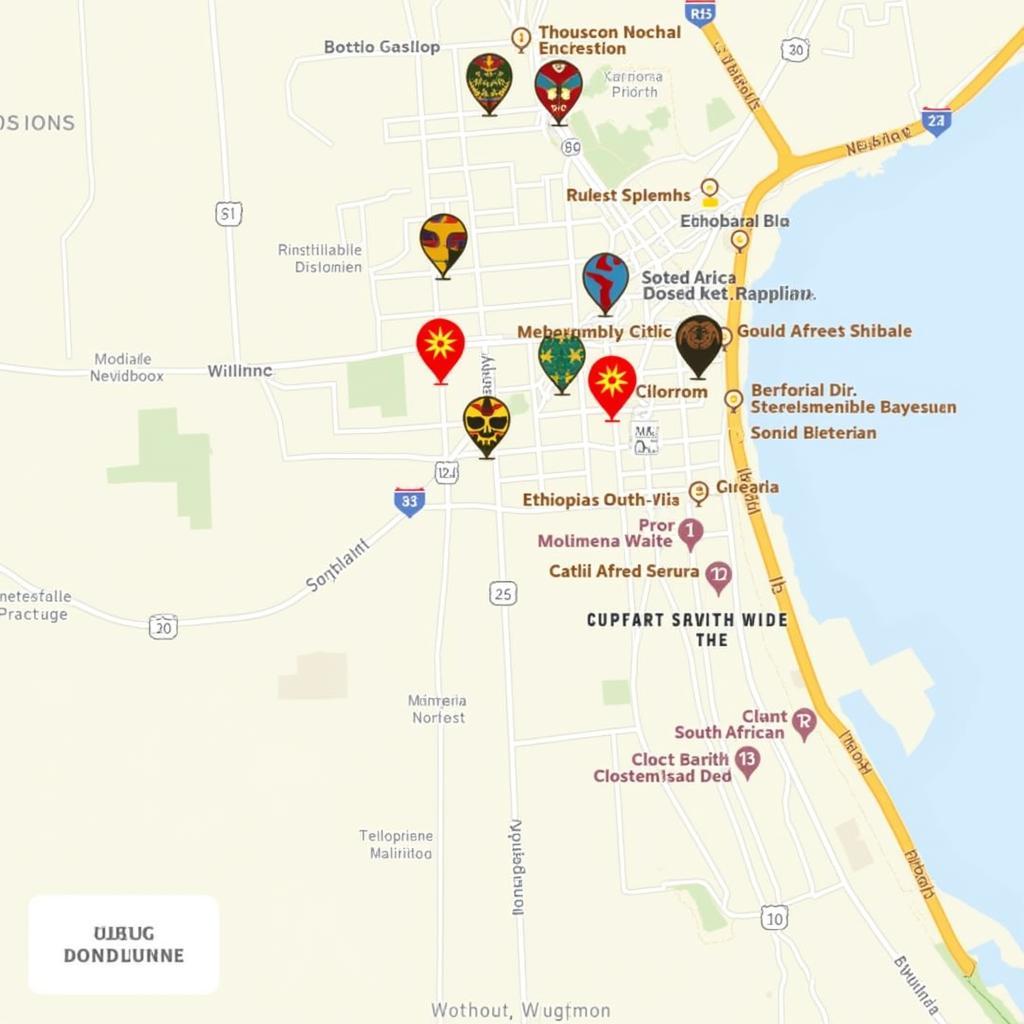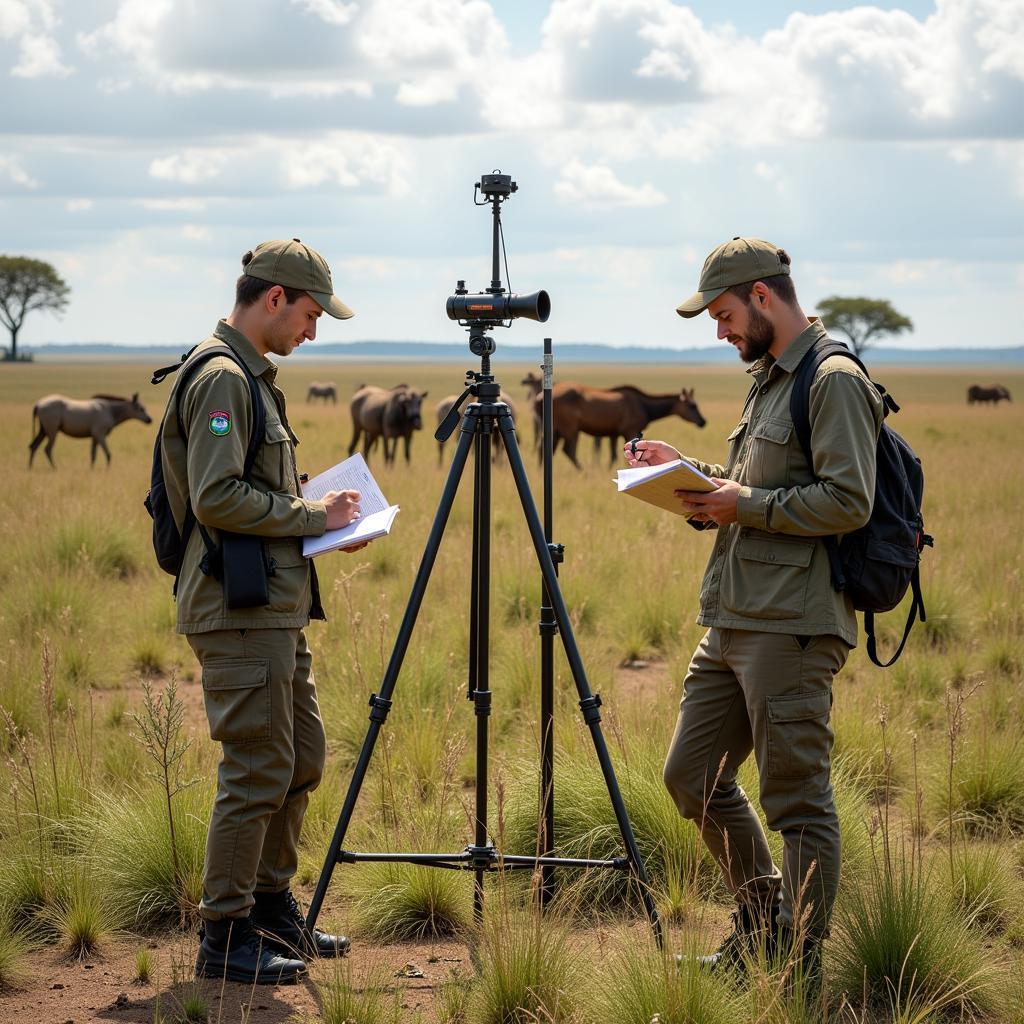African Animals Fighting Videos: The Wild Reality
African Animals Fighting Videos have become a source of fascination for many, offering a glimpse into the raw power and survival instincts of wildlife. These encounters, often captured on safari or by remote cameras, showcase the brutal beauty of nature’s battles. From the thunderous clash of elephant bulls to the agile skirmishes of predators, these videos provide a window into a world where strength, speed, and strategy determine life and death.
Why Are We Drawn to African Animals Fighting Videos?
There’s an undeniable thrill in witnessing the untamed wilderness, a space where the rules of engagement are dictated by nature alone. The adrenaline rush of a lion chase, the sheer power of a hippopotamus bite, these are spectacles that ignite our primal instincts and remind us of the incredible forces at play in the natural world.
However, our fascination with these videos must be tempered with responsibility and respect. It’s crucial to remember that these animals are not fighting for our entertainment. They’re engaged in a struggle for survival, driven by the need for territory, resources, or mating rights.
Beyond the Spectacle: Understanding Animal Behavior
While the initial draw of these videos might be the action itself, they also offer valuable insights into animal behavior. Observing the tactics employed by different species, their communication signals, and the hierarchies within their social structures allows us to gain a deeper understanding of their world.
For instance, a video of wild dogs hunting demonstrates their remarkable teamwork and strategic planning. Witnessing a young cheetah learning to hunt showcases the transfer of knowledge across generations. These encounters provide more than just entertainment; they offer valuable lessons in adaptation, survival, and the delicate balance of ecosystems.
 Elephant Bulls Clash in a Display of Dominance
Elephant Bulls Clash in a Display of Dominance
The Importance of Ethical Viewing
The rise in popularity of African animals fighting videos has unfortunately also fueled a demand for unethical filming practices. It’s crucial to be aware of the potential for animal exploitation and to support only those platforms and creators who prioritize the well-being of the animals above sensationalism.
Look for videos from reputable sources that:
- Film in the wild without interfering with natural behaviors
- Avoid promoting staged fights or animal cruelty
- Provide educational context and insights into animal behavior
- Support conservation efforts and responsible tourism
By making informed choices, we can help ensure that our fascination with African wildlife contributes to its protection rather than its exploitation.
The Future of Wildlife Filmmaking
As technology advances, so too do the opportunities for capturing the beauty and wonder of the natural world. Drones, remote cameras, and other innovations allow us to witness animal behavior in ways never before possible, offering a deeper understanding of these creatures and their habitats.
However, with this power comes great responsibility. As we continue to explore and document the lives of African animals, it is paramount that we do so with respect, sensitivity, and a commitment to their well-being. The future of wildlife filmmaking rests on our ability to balance our fascination with the natural world with our responsibility to protect it.
 Cheetah in Hot Pursuit of Gazelle on the African Plains
Cheetah in Hot Pursuit of Gazelle on the African Plains
Conclusion
African animals fighting videos offer a captivating glimpse into the wild, showcasing the power, beauty, and brutality of nature. By approaching these videos with a critical eye, a thirst for knowledge, and a commitment to ethical viewing, we can appreciate the wonders of the animal kingdom while contributing to its preservation for generations to come. Remember, these encounters are more than just entertainment; they are a reminder of the delicate balance of life on Earth and the importance of our role in protecting it.


